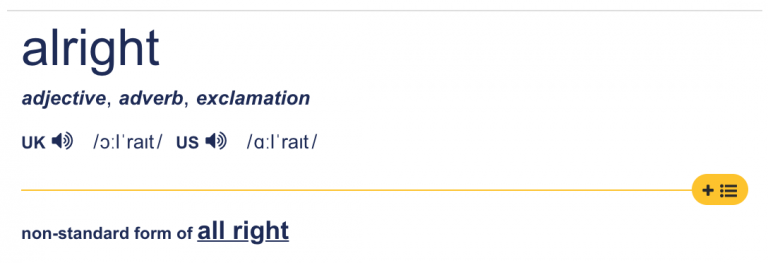How does the Go Correct teacher decide what to correct?
English is a language used by diverse groups of native and non-native speakers. For that reason, a clear definition of what is ‘correct’ is impossible to agree on. There are standard and non-standard forms of English, all of which are equally useful to the people who use them.
Despite this, people learning English usually aspire to speaking standard British or American English in a way that sounds natural to native speakers. We keep this in mind when deciding what to correct in students’ texts.
We assume that English learners have three goals when they use Go Correct:
1. To speak English that can be understood
2. To speak correct standard English (especially if they are preparing for an exam)
3. To sound natural when speaking English
For students with a lower level of English, we prioritise the first two goals.
For students with higher levels, we put more focus on telling them how to sound natural.
Some aspects of grammar that are most obviously correct or incorrect are verb tenses, definite and indefinite articles, singular and plural. Verb tenses in particular are important because they can lead to misunderstandings if used incorrectly.
Of course, some native speakers use non-standard grammar but we correct students’ writing so that it uses standard grammar.
Sounding more natural
If a higher level student says something that is correct but unnatural or too formal, we tell them.
One of the most typical examples is overuse of the words ‘moreover’ and ‘furthermore’. Native speakers only use these words in very formal situations, but non-native speakers seem to use them a lot in much more informal contexts. (Native speakers usually use a phrase like ‘as well as that’ in informal conversation).
Another good example is collocations. Saying ‘learn knowledge’ is not technically incorrect but native speakers would almost never say it. They would use the common collocation ‘acquire knowledge’.
Here are some other examples of phrases used by real Go Correct students that would almost never be used by a native speaker.
‘catch the opportunity’
Native speakers usually say ‘seize the opportunity’
‘bad consequences’
Native speakers usually say ‘negative consequences’
‘the shallow side of the pool’
Native speakers usually say ‘the shallow end of the pool’
Incorrect but native
There are some forms of language that native speakers often get ‘wrong’. In fact, they get them wrong so often that they are almost becoming a standard and accepted form of the language.
Here is one example. A Go Correct student recently wrote “I think that some people learn languages easier than others.” Technically, this is grammatically incorrect, however, many native speakers would say this and it would sound ok. It doesn’t sound too obviously wrong.
(It should be ‘more easily’. Here we need an adverb not an adjective).
When the Go Correct teacher corrects something like this, she sometimes tells the student that many native speakers also use the ‘incorrect’ form.
Here are other examples of ‘mistakes’ made my Go Correct students that are also common for native speakers.
The student said:
“Nowadays, there are less people who smoke”
This isn’t officially correct but many native speakers would say it.
The correct version is “fewer people who smoke”. Use ‘fewer’ because ‘people’ is plural.
The student said:
“I need to make progress on my English level as quick as possible.”
Again, not officially correct but some native speakers would say it.
The correct version is “as quickly as possible.”
Here’s an example of a non-standard spelling that has made it into the Cambridge English Dictionary and is currently listed as ‘non-standard’. How long before it becomes standard?

In conclusion
The concepts of ‘correct’ and ‘incorrect’ are problematic in language. You could argue that all language is correct or good, if it enables the speaker to communicate what they want.
However, we know that the students who use Go Correct want to go beyond simply communicating. They want to pass an exam or they want to sound natural and native. We give them advice to help them achieve these things.
